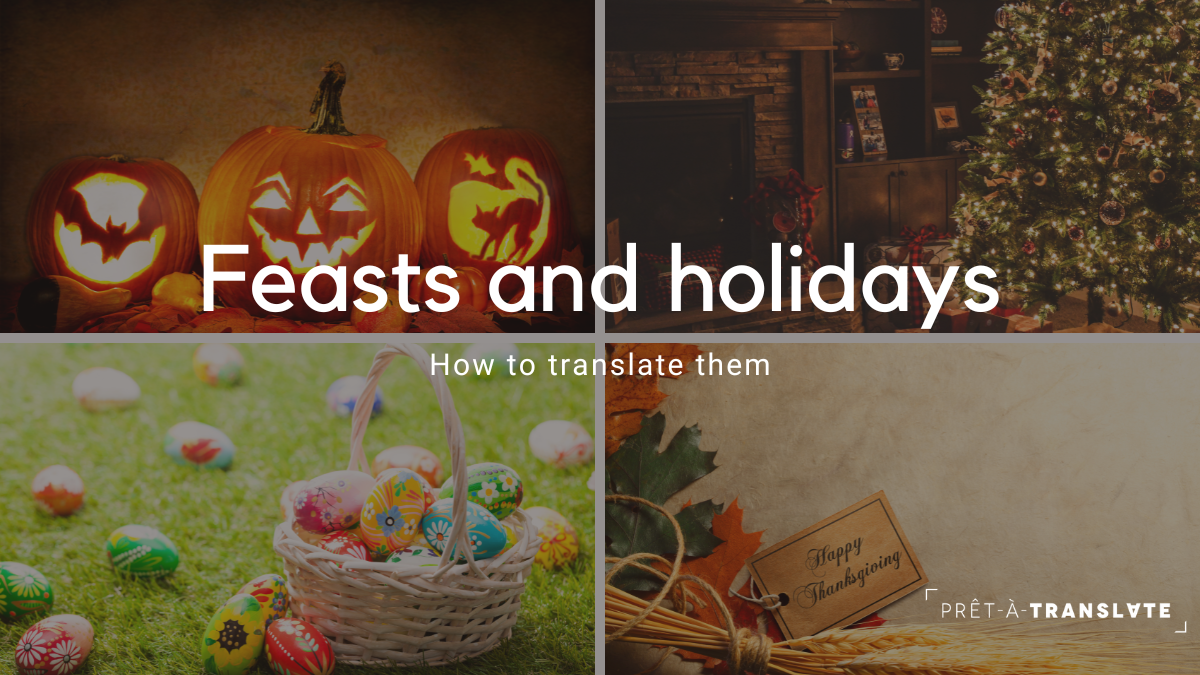
Feasts and holidays. How to translate them
Today is Saint Rufina and Saint John Plessington, among other feasts.
I’m not particularly interested in Saints, but some dates are significant in some countries.
In Spain, some national, regional or local feasts are related to Saints and religious moments:
- Saint George (23rd April)
- Saint John (24th June)
- Our Lady of Mount Carmel (16th July)
- The Assumption of the Virgin Mary (15th August)
- The Immaculate Conception (8th December)
And many more.
Some people mark these days in their calendars, although some may not be official holidays.
Adapting holidays and feasts to Spain
One of my clients has an app to print custom calendars and asked me to translate a list of feasts.
How do we adapt these feasts to Spain?
Localization is translation AND adaptation to local cultures.
These calendars feature different themes:
- Religion: with feasts for Catholic, Jewish, Muslim and Hindu religions.
- Country-specific feasts for Spain, the US, Mexico, Canada and Australia.
- Nature: including dates for the summer and winter solstices, the first day of Spring, etc.
I asked the client to talk to the Product Development team to learn more about how they plan to show these calendars in the app.
While I wait for their reply, this has been my translation approach:
Not applicable feasts
Generally, I didn’t provide a translation for feasts in countries like the US, the UK, Australia and Canada because they wouldn’t make much sense in Spain. There aren’t that many residents from those countries here, and they’d probably want to create their calendar in English, not Spanish.
Popular feasts that don’t make much sense in Spain
I offered translations for the most popular feasts on some of those days, like Thanksgiving or Groundhog Day. We know them in Spain, but we don’t celebrate them at all. I’m unsure if including them in the Spanish app makes sense and I told the client that it may be wise to discard them.

Religious celebrations
I offered translations for the religious feasts, even if traditionally, we only celebrate Catholic feasts in Spain. But as a multicultural country, people from other religions might be interested in creating a calendar for their religion.
For many of these terms, I kept the name in the source language and added the translation in brackets.
For example: Eid al-Fitr (Fin del Ayuno).
Latin American holidays
I offered translations for some feasts in Latin American countries (mostly Mexico), but I added a note because we don’t celebrate those in Spain. This client sometimes asks me for translations into Mexican Spanish, so having a specific calendar for Mexico may make sense.
Same date, different feast
Some countries share a date, but the celebration is different. For example, we don’t celebrate Boxing Day in Spain, but the same day (26th December) is a feast in some regions in Spain. Therefore, I entered the name of that feast, not a translation for Boxing Day.
Conclusion
Localization has a great deal of common sense.
Sometimes, the best adaptation is not to adapt at all.
Or even to delete that content.
Why would a Spaniard want to create a calendar with the holidays and feasts in Australia?
Would they provide the user with relevant information even if they’re in Spanish?
I don’t think so.
Before sending content to translate, it’s helpful to run a content audit.
This audit will help you to choose and adapt your content to your target audience.
My Language and Culture Consultancy services help marketers deliver comprehensive content audits to their clients.
Don’t saturate your audience with content that isn’t relevant to them.
They’ll appreciate it and engage more with your content, product or services.
Do you need a language and cultural expert to help you in a content audit for Spanish users? Contact me and tell me about your needs.
See you for the next post!
